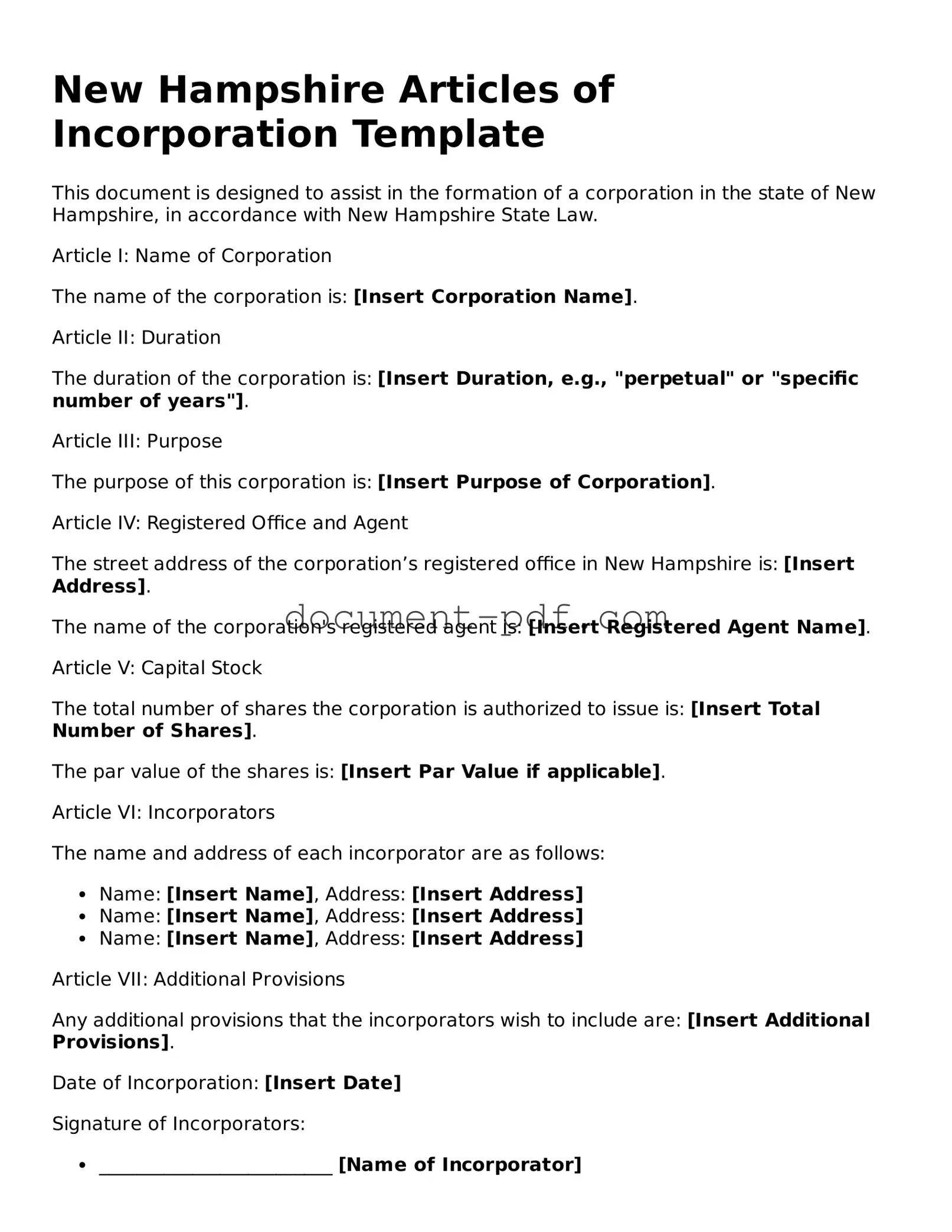Attorney-Verified New Hampshire Articles of Incorporation Template
The New Hampshire Articles of Incorporation form is a legal document that establishes a corporation in the state of New Hampshire. This form outlines essential information about the corporation, including its name, purpose, and registered agent. Completing this form is a crucial step for anyone looking to start a business in New Hampshire; to get started, click the button below.
Access Articles of Incorporation Editor Here

Attorney-Verified New Hampshire Articles of Incorporation Template
Access Articles of Incorporation Editor Here
Finish the form without slowing down
Edit your Articles of Incorporation online and download the finished file.
Access Articles of Incorporation Editor Here
or
Click for PDF Form
